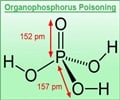A tablet-based suicide risk assessment tool can accurately predict a psychiatrist's assessment of near-term risk for suicide.

‘Suicide ranks among the top four leading causes of death in individuals between the ages of 10 and 54 and claims 25 percent more lives annually than motor vehicle accidents.’





Between 2012 and 2014, Desjardins and her University of Vermont colleagues conducted a three-phase study to evaluate the performance of a tablet-based suicide risk assessment tool they had co-developed in the emergency department (ED) setting. "We hypothesized that the tool would predict the assessment of experienced psychiatrists in evaluating a patient's risk of committing suicide in the next 72 hours in the hospital," write the authors.
By conducting a consensus panel with experts in the field, the researchers developed a tool designed to replicate the thinking of an experienced psychiatrist in the evaluation of near term suicide risk. They then tested this model in three samples of 429 participants using a novel neural network-based algorithm to assess suicide risk in emergency department and medical inpatients. The model was compared to expert psychiatric assessment of near term risk.
The tablet-based tool performed at a remarkably high level. For levels of suicide risk, the model predicted the psychiatrists' assessment at between 91 and 94 percent, but did so in a fraction of the time (less than 1 minute). Patients reported that the tool was easy to complete.
"We've demonstrated for the first time that a simple, quick model can accurately predict a psychiatrist's assessment of near-term risk for suicide," says Desjardins. To have a tool to standardize risk assessment efficiently is the first step towards meeting the Joint Commission mandate.
Advertisement
Source-Eurekalert










